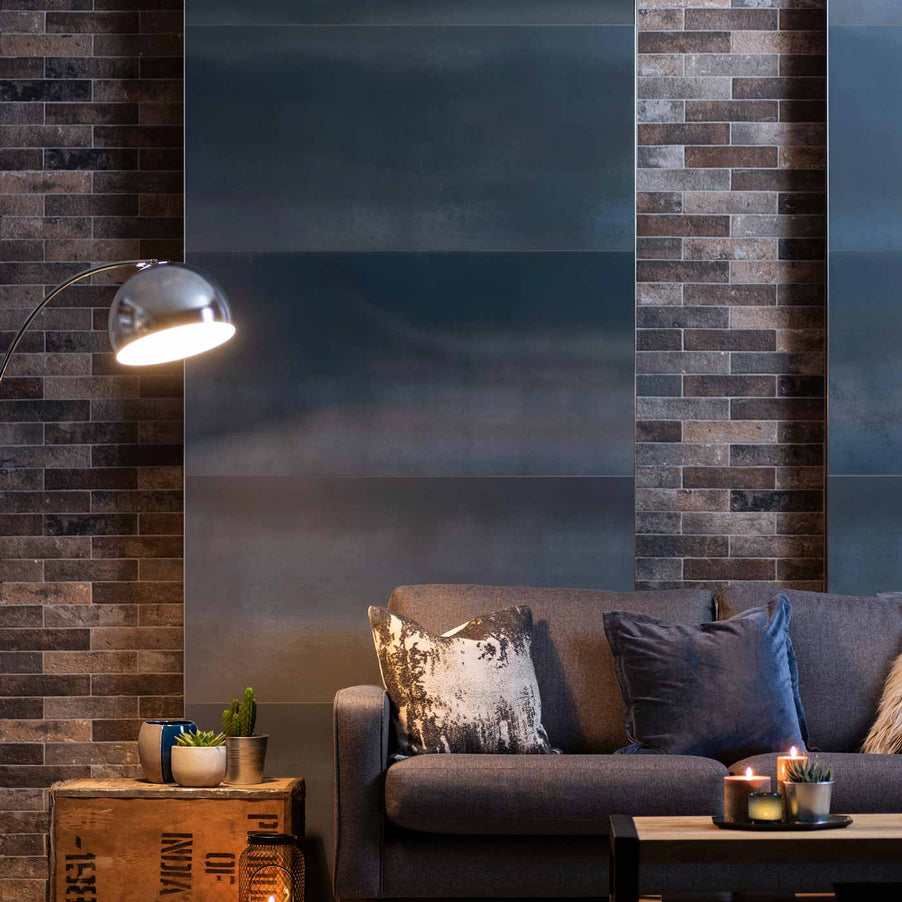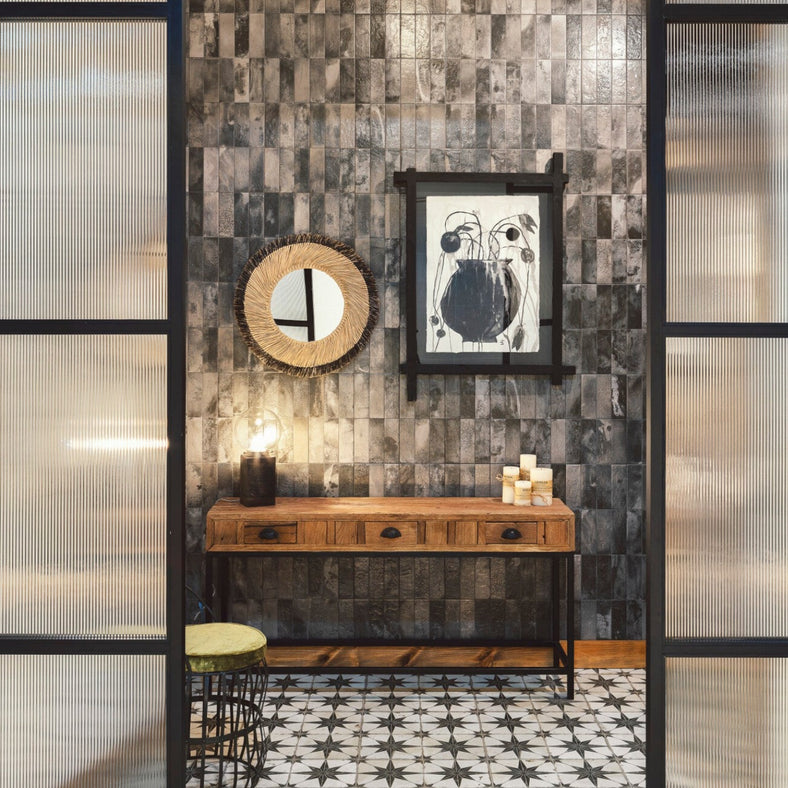Application
Application form

When it comes to ceramic tiles and porcelain tiles, there are some similarities as well as differences. Here we will explain how differences in composition, durability and more can affect project suitability, tile choice and budget.
Porcelain tiles are made from harder clay and fired at even higher temperatures than ceramic tiles, meaning they are the more durable of the two.
Here are key points to remember about porcelain tiles:
These versatile midnight blue porcelain tiles cast a striking contrast to the industrial brick background.
Ceramic tiles are a popular choice for flooring and wall coverings. They are made from various clays and then fired at high temperatures.
Here are key points to remember about ceramic tiles:
Raku black ceramic wall tiles are a stylish addition to hallways for some rustic chic.Now you know a bit more about porcelain tiles and ceramic tiles, you can make you make an informed decision for your project. Whether you prioritize durability, easy maintenance, versatility, water resistance, or health benefits, tiles offer a practical and stylish solution for your flooring and wall needs.
{"one"=>"Select 2 or 3 items to compare", "other"=>"{{ count }} of 3 items selected"}



